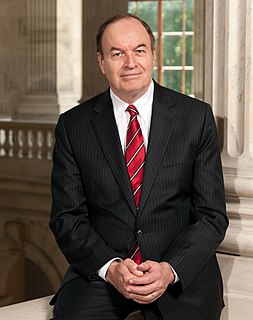A Quote by Lee Myung-bak
Fortunately, when Korea was struck by the 1997/8 financial crisis, that was a good opportunity for us to engage in fundamental reforms and strengthen our financial structure. As a result, our financial regulatory structure and regime have been very much strengthened.
Related Quotes
The global financial crisis is a great opportunity to showcase and propagate both causal and moral institutional analysis. The crisis shows major flaws in the way the US financial system is regulated and, more importantly, in our political system, which is essentially a bazaar of legalized bribery where financial institutions can buy themselves the governmental regulations they want, along with the regulators who routinely receive lucrative jobs in the industry whose oversight had formerly been their responsibility, the so-called revolving-door practice.
I believe that the financial crisis of 2008/9 exposed more a lack of ethics and morality - especially by the financial sector - rather than a problem of regulation or criminality. There were, of course, regulatory lessons to be learned, but at heart, there was a collective loss of our moral compass.
Financial literacy is not an end in itself, but a step-by-step process. It begins in childhood and continues throughout a person's life all the way to retirement. Instilling the financial-literacy message in children is especially important, because they will carry it for the rest of their lives. The results of the survey are very encouraging, and we want to do our part to make sure all children develop and strengthen their financial-literacy skills.










































